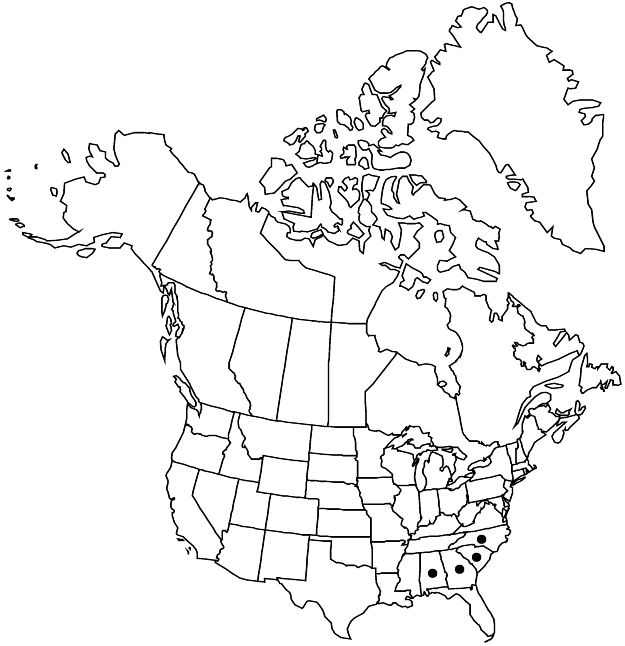Difference between revisions of "Minuartia uniflora"
Bot. Jahrb. Syst. 57(Beibl. 126): 28. 1921.
imported>Volume Importer |
imported>Volume Importer |
||
| Line 81: | Line 81: | ||
|publication year=1921 | |publication year=1921 | ||
|special status=Endemic | |special status=Endemic | ||
| − | |source xml=https:// | + | |source xml=https://bitbucket.org/aafc-mbb/fna-data-curation/src/2e0870ddd59836b60bcf96646a41e87ea5a5943a/coarse_grained_fna_xml/V5/V5_278.xml |
|subfamily=Caryophyllaceae subfam. Alsinoideae | |subfamily=Caryophyllaceae subfam. Alsinoideae | ||
|genus=Minuartia | |genus=Minuartia | ||
Latest revision as of 22:10, 5 November 2020
Plants annual. Taproots filiform. Stems erect to ascending, green, 7–20 cm, glabrous, internodes of stems 1–7 times as long as leaves. Leaves not overlapping, connate proximally, with tight, herbaceous or scarious sheath 0.1–0.3 mm; blade straight to outwardly curved, widely spreading, green, flat, 1-veined abaxially, especially proximal, narrowly lanceolate to oblong, commonly linear, 2–20 × 0.3–1.5 mm, flexuous, margins not thickened, scarious, smooth, apex green to purple, rounded to acute, dull, glabrous; axillary leaves poorly developed. Inflorescences 7–25+-flowered, open cymes; bracts subulate to ovate, herbaceous, margins scarious. Pedicels 0.5–5 cm, glabrous. Flowers: hypanthium disc-shaped; sepals obscurely veined, ovate to elliptic or lanceolate (herbaceous portion elliptic to lanceolate), 2–3.5 mm, not enlarging in fruit, apex green, obtuse to rounded, not hooded, glabrous; petals oblanceolate to spatulate, 1.5–2.5 times as long as sepals, apex rounded, entire to shallowly notched. Capsules on stipe shorter than 0.1 mm, pyramidal-ovoid, 3.5–4 mm, longer than sepals. Seeds yellowish brown, suborbiculate with radicle obscure, slightly compressed, 0.4–0.6 mm, tuberculate; tubercles low, rounded. 2n = 14.
Phenology: Flowering spring.
Habitat: Sandy or granitic outcrops
Elevation: 70-200 m
Distribution

Ala., Ga., N.C., S.C.
Discussion
Minuartia alabamensis was originally described to accommodate much-reduced plants from Alabama (J. F. McCormick et al. 1971). Subsequent studies have shown them to be conspecific with M. uniflora (R. Wyatt 1984).
Selected References
None.